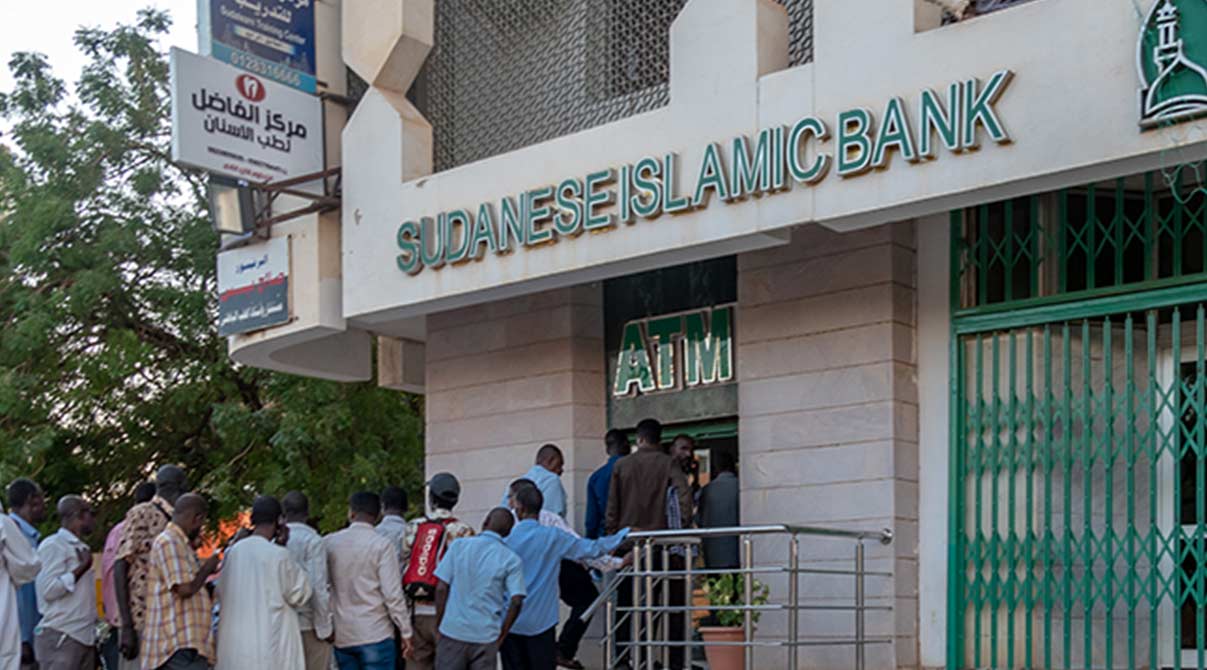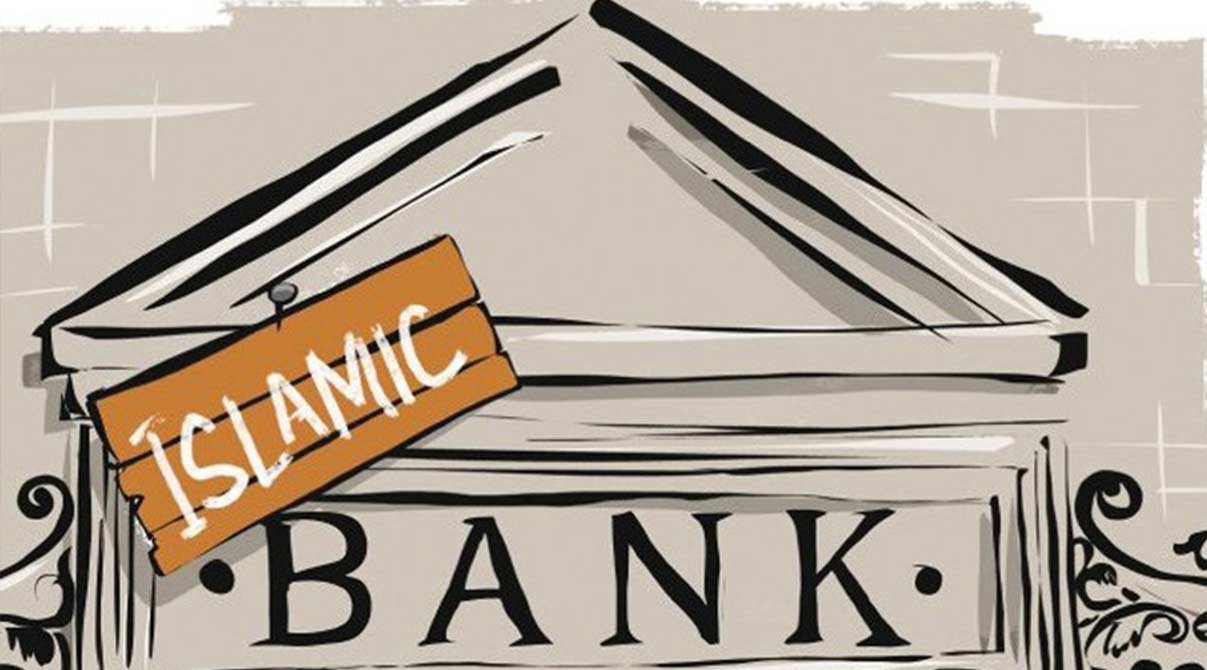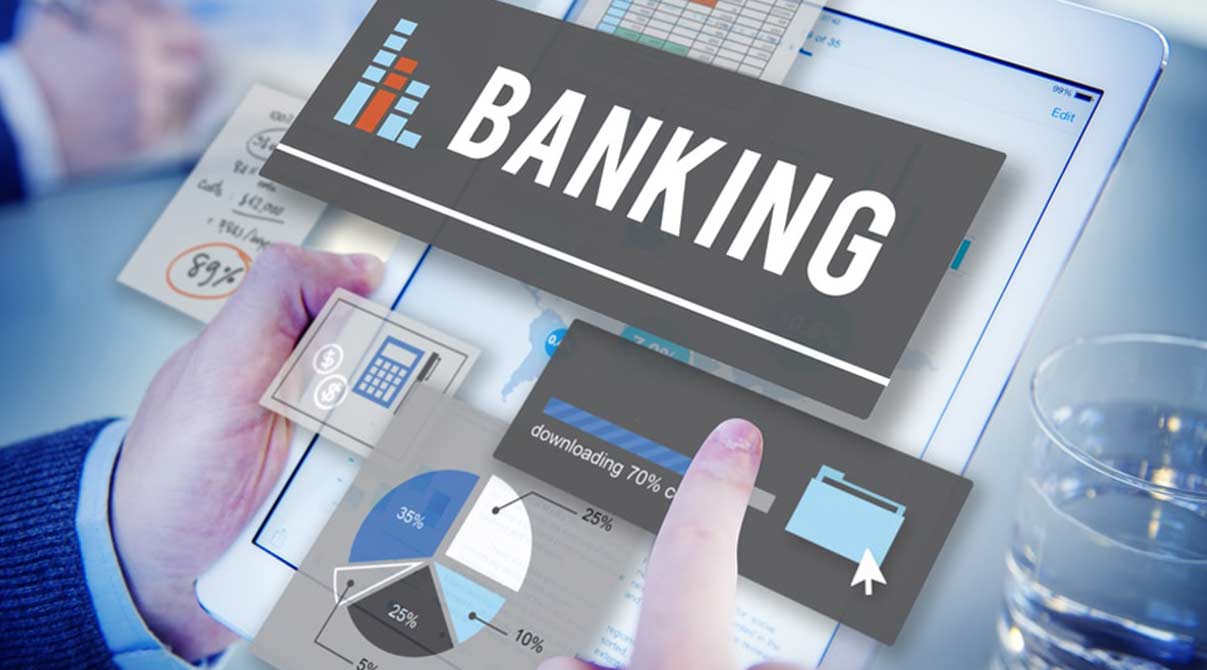Shariah-compliant financial institutions are also known as Islamic banks or Islamic financial entities. They follow Islamic law, also known as Shariah, in their fiscal policies. The primary principles of Islamic banking are equitable sharing between stakeholders and banning interest payments by lenders and financiers. Islamic financial markets account for 22% of the world stock market’s worth. This data is according to an estimate from 2020 by the Islamic Corporation for the Development of Private Sector and Refinitiv. The value of the international Islamic finance market reached US$ 2.2 billion in 2021, and by 2027, it is expected to increase to US$ 3.02 billion.
Learn more about Shariah-complaint banking in Pakistan.
What is Shariah-compliant Banking?
During the years 2022–2027, a CAGR of 10.2% is anticipated. Islamic banking is based on principles of the Islamic faith that pertain to financing companies. The principles of Islamic banking are based on the Qur’an, the central religious text of Islam.
In Islamic banking, transactions must follow Shariah law, the Shariah code of Islam. The rules that govern commercial transactions are based on the laws in the Quran. These are shaped by the emblematic book of Islam, the Quran, mathematical legislation, jurisprudence, or analogy. Employees of Islamic financial institutions, as a rule, are trusted to adhere strictly to the tenets of the Quran while on the job. When the extra resources or guidance required is uncertain, they will avidly consult scholars. These scholars base their deductions on scholarly consensus on the basis of common logic. They make use of the thoughts of others based on establishing consistency. Likewise, they might rely on common ideas or the work of those who ensure the consistency of thinking.
Islamic banking’s distinction from traditional banking is that it discourages usury and gambling practices. It strictly forbids speculation and gambling. Islamic banking also prohibits taking extra costs on debts (interest or sood). Islam also doesn’t permit the ownership of any item or substance ruled to be unlawful by Shariah rules in the Quran. Shariah-compliant banks make use of equity participation systems to create passive income without the normal process of making extra interest charges.
Equity participation entails that, if an Islamic financial institution lends cash to a company, the business returns the amount, of the loan without financial interest and in return grants the Islamic financial institution a stake in the company’s earnings. If the company does not pay off the Islamic financial institution’s loan, or it doesn’t make a good payoff, then the financial institution does not gain any reward. In general, the Islamic financial institution obtains ownership of the company at such times as Shariah law allows.
History of Shariah Banking
Since the Middle Ages, business people have been carrying out financial transactions (1,000–1,500 AD). In the Middle East and Asia, some European corporations established banks with interest-bearing finance systems, which expanded. These commercial banks were frequently solely utilized by local business owners to make money transfers between accounts.
There were restrictions on both lending and depositing money because most locals preferred to avoid engaging in interest-bearing activities. Banks were more essential than ever as economic demands grew and nations gained independence from colonial authority. These banks had to be used by people, businesses, and governments whether or not the populace approved of the system. A banking alternative with no interest was suggested by some experts to provide a more appealing option.
Related: Bank Alfalah Becomes the First-ever Pakistani Bank to Launch a Digital Banking Portal
The Mit Ghamr savings initiative in Egypt became the first well-known financial institution. It opened for business as interest in the traditional style of banking grew steadily. This concept was incorporated by the Nasser Social Bank in 1971. Islamic financing was also discussed at reputable gatherings like the First International Conference on Islamic Economics and the Finance Ministers of Islamic Countries. As a result, interest-free banking moved from being merely a theory to practical implementation. Soon after, an intergovernmental financial institution was established in 1975. The first privately held interest-free bank, known as the Dubai Islamic Bank, debuted that same year. More institutions followed in nations including Kuwait, Sudan, and Egypt.
In Islamic nations, more than 50 interest-free banks opened up until 1975. In the early 1980s, Islamic banks began to emerge in Western Europe as well. Additionally, the governments of Iran and Pakistan each introduced an Islamic finance system in each bank. Even several traditional banks now offer Islamic financing solutions as the list of Islamic banks increases. Islamic banks therefore do present a commendable alternative to the more established commercial banking system. Companies that specialize in Shariah structuring and advising have expanded significantly over the past ten years. These aim to serve Muslim consumers as a convenient option for Islamic finance solutions.
Importance of Shariah-compliant Banking
Shariah-compliant banking is an increasingly popular form of Islamic finance that is rapidly gaining traction across the globe. Shariah banking follows strict religious principles and applies them to financial services. The main principles of Shariah banking are based on avoiding interest, and excessive risk-taking. They also include investing in activities that are deemed socially unacceptable according to Islamic teachings. These principles have helped differentiate Shariah-compliant banking from traditional banking systems. Thus, making it a viable alternative for many people around the world.
The importance of Shariah-compliant Banking lies in its ability to provide financing solutions for those who seek to practice their faith while also engaging in safe financial practices. It also provides an opportunity for Muslims to participate in economic development. Hence, they don’t have to compromise or fear retribution for not adhering to traditional Western models of finance.
Shariah banking seeks to promote social justice, economic growth, and shared prosperity among members of society. It does this by focusing on investments in socially responsible activities. For instance, charity work, renewable energy projects, education initiatives, healthcare solutions, and more.
Difference between Conventional Banking and Shariah Banking
The banking industry has come a long way since its inception. With the introduction of technology, banks now offer a variety of services to meet customer needs. One important development in the banking sector is Sharia-compliant banking, which is based on Islamic principles. As the name implies, Shariah banking is different from conventional banking in several ways.
The primary difference between conventional and Shariah-compliant finance lies in their approach toward charging interest and investment activities. Conventional banks charge interest while Shariah-compliant institutions are prohibited from doing so due to religious reasons. Additionally, investments made by conventional banks may involve gambling or speculation. Islamic law prohibits this; whereas Shariah-based investments are all done according to ethical rules.
Advantages of Shariah-compliant Banking
Shariah-compliant banking is a form of Islamic finance that follows the principles and rules of Shariah law. It is becoming increasingly popular across the world as it provides many advantages to both customers and banks.
For customers, Shariah-compliant banking offers a secure investment option. It relies on asset-based investments rather than speculative activities such as derivatives trading or day trading. As well as providing more security, these investments also provide higher returns due to their diversified nature. This can offer clients a better rate of return than traditional savings accounts. Furthermore, Shariah-compliant banks are ethical. They don’t invest in activities deemed unethical according to Islamic law such as businesses involving alcohol, gambling or pork production.
One of the considerable benefits of Islamic banking is that it’s unlawful for banks to charge interest on loans. In this sense, Islamic banks conform to Shariah law, which prohibits interest and speculation. Thus, regardless of if you’re Muslim or not, if interest-free loans interest you, Islamic banks are precisely what your business needs.
Moreover, the basic precept of the Islamic mode of business, capital-based on a profit and loss sharing strategy, is shared by the bank and the customer. It gives rise to a more even distribution of wealth and income. This model of financial intermediation contributes to a more equitable distribution of incomes.
Islamic banking rewards those acting with integrity, striving to do the best they can to provide customers with the products and services they demand at a price that’s reasonable and transparent. They’ll work with customers to be sure that they have a full comprehension of the risks and costs involved with the products and services.
Shariah-Compliant Banking in Pakistan
Shariah Compliant Banks in Pakistan are becoming increasingly popular in the banking sector. As it allows investors to make investments without breaching religious principles. The main principle of Shariah-compliant banking is that it prohibits earning a return from money invested in the bank. That is a form of usury or interest typically associated with traditional banking.
In Pakistan, many banks have adopted the Shariah-compliant approach when it comes to lending and investing money. These types of banks are subject to certain rules and regulations set out by the State Bank of Pakistan (SBP). These include specific guidelines on how they manage their funds and customer accounts. In addition, these banks must also adhere to Islamic law regarding financial transactions. For instance, they must avoid gambling-related activities, riba or fixed interest rates on loans, and speculative investments.
Some Shariah-compliant Banking options in Pakistan include:
State Bank of Pakistan
The Islamic Banking Department of SBP has always been working to create a progressive, robust, and stable banking system that complies with Shariah. The department has taken on the responsibility of facilitating and igniting the growth of the nation’s Islamic banking sector in this regard.
It establishes a framework for legal, regulatory, and Shariah compliance. This framework advocates Islamic financing as a distinctive and efficient system to meet the demands of the general public in terms of financial services. Moreover, it conducts focused research projects to better understand market dynamics.
Additionally, it works with regional and global stakeholders to provide competitive and creative solutions for the various financial requirements of the real economy. The department is also working on a number of unique initiatives. Some of these may involve structuring connected to Sukuk or developing certain goods or schemes. It distributes information about Islamic banking via the quarterly Islamic Banking Bulletin (IBB).
Al Baraka Bank Pakistan
In Pakistan’s Islamic banking industry, the first merger gave rise to Al Baraka (Pakistan) Limited (ABPL). The regional functions of Al Baraka Islamic Bank (AIB) Bahrain, Al Baraka Islamic Bank Pakistan (AIBP), and Emirates Global Islamic Bank (Pakistan) combined. Consequently, the merged entity’s operations started on November 1st, 2010. 2016 saw the second merger with Burj Bank Ltd. The Bank has over 190 branches spread over more than 97 cities, giving it a presence all throughout Pakistan.
At the Annual Islamic Business and Finance Awards Ceremony in Dubai in 2010, Al Baraka received the “Best Regional Bank” award. ABPL is heavily reliant on its capacity to be an efficacious and competitive market player via renewed emphasis on exceptional customer service. The creation of Islamic substitutes for traditional finance options and strict compliance with Shariah laws and principles are also its strengths.
Al Baraka Bank (Pakistan) Limited serves the corporate, small and medium-sized enterprise (SME), and consumer sectors of the economy by providing a comprehensive range of Islamic financing solutions such Murabaha, Ijarah, Musharakah, and Islamic Export Refinance, among others. Along with a wide range of card-based and digital banking alternatives. Consumers can also invest their money in a number of Shariah-compliant deposit programs.
Bank Islami Pakistan Limited
BankIslami provides genuine, shariah-compliant, and technologically cutting-edge goods and services. It seeks to add value for its stakeholders. Moreover, it aspires to be the top Authentic Islamic Bank. With more than 340 branches spread throughout more than 123 locations nationally. BankIslami is the second biggest Islamic Bank of Pakistan and the 11th largest financial services network in the nation.
Related: Ignite and JS Bank Collaborate to Support the Young Entrepreneurs of Pakistan
Renowned scholars Mufti Irshad Ahmad Aijaz, Mufti Muhammad Hussain, and Mufti Javed Ahmad make up the Shariah Board of BankIslami. BankIslami has an “A” rating for long-term credit and an “A1” rating for short-term credit.
Investment Banking at BankIslami provides clients with a wide variety of all-inclusive, cutting-edge, and specially designed customer-centric consulting products. Following the classification of goods and services into low, medium, and high risk, it organizes the product in accordance with Shariah principles.
UBL Islamic Banking
UBL Ameen offers a wide variety of Shariah Compliant Islamic Banking solutions and services with its specialized branches in key cities all across Pakistan. It has UBL’s 50+ years of solid banking history on its back as its support.
It is the first of its kind: a digital banking service that offers two different banking preferences – Smart Shariah Compliant Banking and Conventional Banking – in one account. Customers of UBL can now enjoy effortless transactions with the reassurance of being Shariah-compliant.
This pioneering new service provides customers with convenience, flexibility, and speed, allowing them to make payments online, transfer funds between accounts, and withdraw cash from ATMs using their debit cards. The Shariah-Compliant Conventional option allows customers to benefit from higher interest rates as well as access to additional services like car financing and savings plans.
UBL Islamic Banking has set itself apart by introducing the latest technology such as biometrics for secure logins, and real-time notifications for transaction updates.
Meezan Bank Limited
Meezan Bank, the greatest bank in Pakistan and the country’s first and biggest Islamic bank is a publicly traded business with Rs. 17.89 billion in paid-up capital. It is one of the financial institutions with the nation’s banking sector’s fastest growth rates. The First Islamic Bank began operations in 2002 with the goal of making “Islamic banking the banking of first choice” after receiving the first-ever Islamic financial services license from the State Bank of Pakistan.
With a retail banking structure of over 900 branches in 250+ locations across the nation, the Bank offers a full spectrum of Islamic banking solutions and services. The branch network gains support from its modern T-24 core banking systems, more than 950 ATMs, VISA and MasterCard debit cards, a call center, internet banking, mobile applications, and SMS banking capabilities. These services are available around-the-clock.
Related: HBL Launches WhatsApp Banking Service
The Bank is highly popular for its expertise in product development, Islamic banking research, and advisory services and closely adheres to Islamic Shariah. The Bank established a specialized Product Development and Shariah Compliance division to facilitate strict Shariah compliance in all of its products and services.
Some other Islamic Finance options include Allied Aitebar Islamic Banking, HBL Islamic Banking, Bank Alfalah Islamic, Dubai Islamic Bank, National Bank of Pakistan, Askari Bank, MCB Islamic Banking, and Bank Al-Habib Islamic Banking.
Conclusion
In conclusion, Shariah-compliant banking in Pakistan is a rapidly growing sector. The Islamic banking industry has seen immense growth over the past decade and is now a major contributor to the nation’s economy. This form of banking has brought greater financial inclusion to Muslim communities across Pakistan and even globally, providing them with access to interest-free banking services that better align with their religious beliefs.
Shariah-compliant banking has also been instrumental in increasing the flow of foreign investment into the country, as more investors inspire by its ethical and socially responsible investing practices. Furthermore, expanding access to financing for businesses has helped foster economic development and job creation throughout Pakistan. Through continued innovation and collaboration between public and private institutions, Shariah-compliant banking can continue playing an important role in driving economic growth and prosperity for all citizens of Pakistan.






